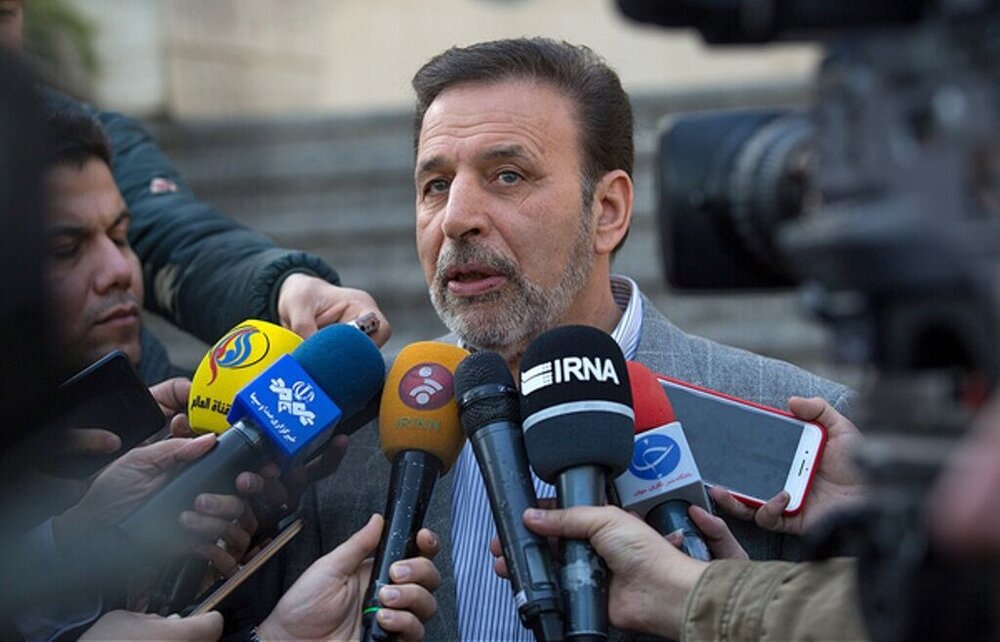Europeans, others talking to Tehran on a mechanism to save JCPOA, Iran says

TEHRAN – Iran reiterated on Wednesday that it will take the next step to reduce commitments to the 2015 nuclear deal, officially known as the Joint Comprehensive Plan of Action (JCPOA), if no concrete action is taken by the remaining parties to protect Iran from the U.S. sanctions.
Under the JCPOA, Tehran agreed to restrictions on its nuclear work in exchange for termination of economic sanctions. The deal was signed in July 2015 between Iran, the five permanent members of the UN Security Council, Germany and the European Union. However, U.S. President Donald Trump quit the deal in May 2018 and imposed the toughest ever sanctions on Iran.
“Europeans and others constantly send us messages and talk about reaching a common framework before end of two-month deadline,” presidential chief of staff Mahmoud Vaezi told reporters on the sidelines of a cabinet meeting.
He added, “Negotiations are being held. However, Mr. President [Hassan Rouhani] has formed a committee for taking the fourth step. Definitely, we will take the fourth step if we do not reach a common framework.”
On May 8, exactly one year after the U.S. abandoned the deal, Tehran began to partially reduce its commitments to the agreement at bi-monthly intervals.
In the first stage, Iran announced that it will not limit its stockpile of the nuclear fuel to 300 kilograms allowed under the deal. However, on that date (May 8) Iran’s Supreme National Security Council (SNSC) said if the remaining parties to the JCPOA, especially Europeans, devise a mechanism to protect Iran from the sanctions' effect in the two-month deadline it will reverse its decision.
But since European parties missed the deadline, on July 7 Iran announced that it has started enriching uranium to a higher purity than the 3.67%, thereby starting the second step.
Again, as Europe missed the second 60-day deadline, Iran moved to take the third step, removing a ban on nuclear research and development (R&D).
Foreign Ministry spokesman Abbas Mousavi said on Monday that Tehran is ready to take the fourth step to reduce commitments under the JCPOA.
“We hope that we would witness special action by the remaining countries to the JCPOA, otherwise Iran is ready to take the fourth step,” Mousavi said in a regular press briefing.
Mousavi added that the mechanism for the next step (fourth step) has been devised.
Iran’s next step falls in early November.
Reportedly, in the next step, Iran intends to limit nuclear inspections by the United Nations’ International Atomic Energy Agency.
Mousavi also said Iran’s action in reducing its commitments is within the framework of the JCPOA and the Europeans have no right to complain about it.
Paragraph 36 of the JCPOA has provided a mechanism to resolve disputes and allows one side, under certain circumstances, to stop complying with the deal if the other side is out of compliance.
‘Opponents of FATF must accept responsibility of their objections’
Vaezi also said that those who oppose Iran joining the Financial Action Task Force (FATF) must accept the responsibility for consequences.
“Unfortunately, these economic and banking bills have been politicized and factional and those who oppose approving them must accept responsibility for their opposition,” he noted.
The Paris-based Financial Action Task Force (FATF) said on Friday it has given Iran a final deadline of February 2020 to tighten its laws against money laundering in compliance with the global watchdog’s financial standards.
“If before February 2020, Iran does not enact the Palermo and Terrorist Financing Conventions in line with the FATF Standards, then the FATF will fully lift the suspension of counter-measures and call on its members and urge all jurisdictions to apply effective counter-measures, in line with recommendation 19,” the FATF said in a statement on Friday, Reuters reported.
Gholamreza Mesbahi-Moghadam, a member of the Expediency Council, told ISNA in an interview published on October 14 that the council has set aside studies to approve the Palermo bill.
“Palermo and CFT will help the United States to identify the ways we circumvent the sanctions. We will not tighten sanctions by our own hands,” Mesbahi-Moghadam remarked.
One of the actions Iran is required to take to appease the FATF is to ratify the CFT, the convention combatting the financing of terrorism.
Talking in a cabinet meeting on Wednesday, President Hassan Rouhani called on the Expediency Council to approve FATF related bills.
“It is our pride that we fight terrorists and counter corruption, therefore we should not allow allegations of money laundering against our banking system.”
He added, “This hurts our country.”
NA/PA
Leave a Comment